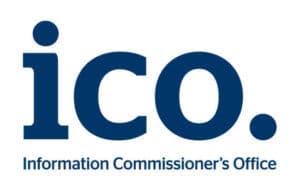COVID, looking after your staff, the anxiety of returning to the office.
For many of us, at some point in the last year, we stood up from our desks at the end of the working day and haven’t been back a lot since. Our keyboard, mouse, breakfast bars, jars of coffee and other novelty items that scatter our desks have remained untouched.
During the months that have followed, we have sat at home, talking to colleagues and customers from our kitchen tables, our home offices, and our living rooms. We’ve been surrounded by pets, family, and the allure of the fridge – far from the hustle and bustle many of us were used to.
We have been told that it is too dangerous to go outside and mingle, that we all had to step up and do our part to stop the spread of COVID-19. Sacrifices were made at many different times and to differing degrees, but we have made a difference and saved lives. There has undoubtedly been a cost to peoples’ well-being across the board, again to varying degrees. What can we do to ensure we are physically and mentally prepared for what lies ahead?
Now with the Government encouraging us to safely return to the office, we once again have to plan our busy commute and return to that busy office place. For many of us at first, we missed the office, the banter with our friends, colleagues and clients but 2-3 months on with COVID-19 still a threat many now feel strong anxiety about coming together as a group once again.
The anxiety is compounded by a mixture, The pressure from our bosses to return, in many cases this could be the first we’ve heard from our managers in months on anything other than the day to day tasks. The chances are your office has now been rearranged beyond recognition to allow for social distancing and to some degree for many companies…
Your colleagues may never be returning. Redundancies have been at a record rate in the UK since March 2020. When you start to throw in the worries young families (and families of all ages) have around schooling and child care where something now has to be organised and it’s not just you returning to the workplace but your child to nursery or school as well, It’s easy to understand why people are having such a hard time.
So what should you do as a business owner?
Empower your employees with three things
- Flexibility
- Communication
- Trust
Flexibility
Returning to the office for your team shouldn’t be a requirement. You may be spending money on the office, business rates, rent, electricity etc but you’ll be paying that if the employee is there or not so if they’re happier working from home and want to plan their phased return to the office then let them. Be flexible – You don’t need to set certain days a week in the office or at home, With three months of it already under our belt we’ve already adapted our way of working, conference calls – chats with colleagues. It can all be done at home or the office. Let your employees decide on a weekly, or daily basis. The more flexibility you give them especially around childcare and other elements beyond our control the more comfortable they will be in their phased return to the office.
Consider giving your staff the third option. Rent some Co-Working space – especially if your employees have to commute some distance and are grouped. If your office is in Taunton but you have a group of employees in Exeter then pay to get some co-working space in Exeter and give the staff the option to go there instead. Greeting little pools of teams again is a great way to start the long process of getting your company back together.
Communication
COVID-19 was a test of the strength of every company’s communication structure, their transparency and if they truly do put their staff first. I’ve heard many nightmare stories about company managers staying quiet, staff slowly being furloughed never to be heard from again – and those poor furloughed staff not being given updates for the entire length of their furlough but they fatefully receive an email informing them that they’re being let go, or it’s the start of the redundancy process. Companies only had one chance during COVID and many reputations will take a long time to recover.
If your communication through the last three months was good, or bad – You still need to encourage as much communication as possible between your senior management team and all of your employees, as well as making sure that employees talk to each other and with clients. There’s no barrier or wall put in the way and that all of them have a clear line. Issuing each of your employees with a webcam is a great way to start, making sure you have an internal chat system in places like Slack or Microsoft Teams. You need to encourage conversation – be active – ask how everyone’s day is. The more staff feel forgotten, the less they are engaged with the more withdrawn they will be, they may still work hard but you may find their social anxiety increases or personality changes.
What I can’t stress enough about this is – Don’t talk about doing it, Don’t talk about how important communication and transparency is but then have no idea from a first-person perspective how each of your team is doing. It’s a commitment, and not an easy one at that but you’ll be rewarded with hard work and loyalty. For those anxious employees of yours if done correctly this should relieve a lot of stress and worry.
Trust
I’ll hold my hand up and say pre-pandemic I let people work from home but I never expected to get the same level of work from them. My deep-rooted feelings were that people are more distracted at home, they’re not being watched and more likely to watch TV, get distracted and generally have lower work output. This certainly wasn’t an unfounded feeling – I can remember many a time messaging and trying to get hold of someone working remotely for it takes 2-3 hours to get a response compared with just walking over to them in the office… but it turns out COVID proved me wrong.
If you trust your team to get something done, If you empower them to do so – Even if that’s trusting better communication if they’re capable then they will.
You need to trust that your team has the best interests of the company at heart, the best interests of their colleagues and their clients. You trust them to find that balance between home and work.
If they don’t, it’ll soon become obvious. You’ll be able to see it and so will the rest of your team. It’s only then you need to sit them down (virtually) and have a chat and guidance. Lead by example and with the carrot (Trust) and not the stick.
What are we doing at Dexterous
We’ve been in a lucky position over the last three months where we haven’t needed to furlough any of our staff. Instead, we’ve been hiring, our staff have been working remotely, and from the office on an increasing number of projects.
We’re encouraging our staff to work from the office where possible and where they feel comfortable. As a small team, we haven’t needed any internal communication tools before but we’ve now taken on Slack and other tools to help bridge the gap in communication and help to make things feel as normal as possible. Overall we’re spending the time to look out for each other and with the common goal of growing the business and helping each of our clients make their way through the business difficulties brought on by the Pandemic.
If your business is in need of any printed materials to bring things in-line with Covid-19 regulations, get in touch or read our blog here to see all the products we can offer.











